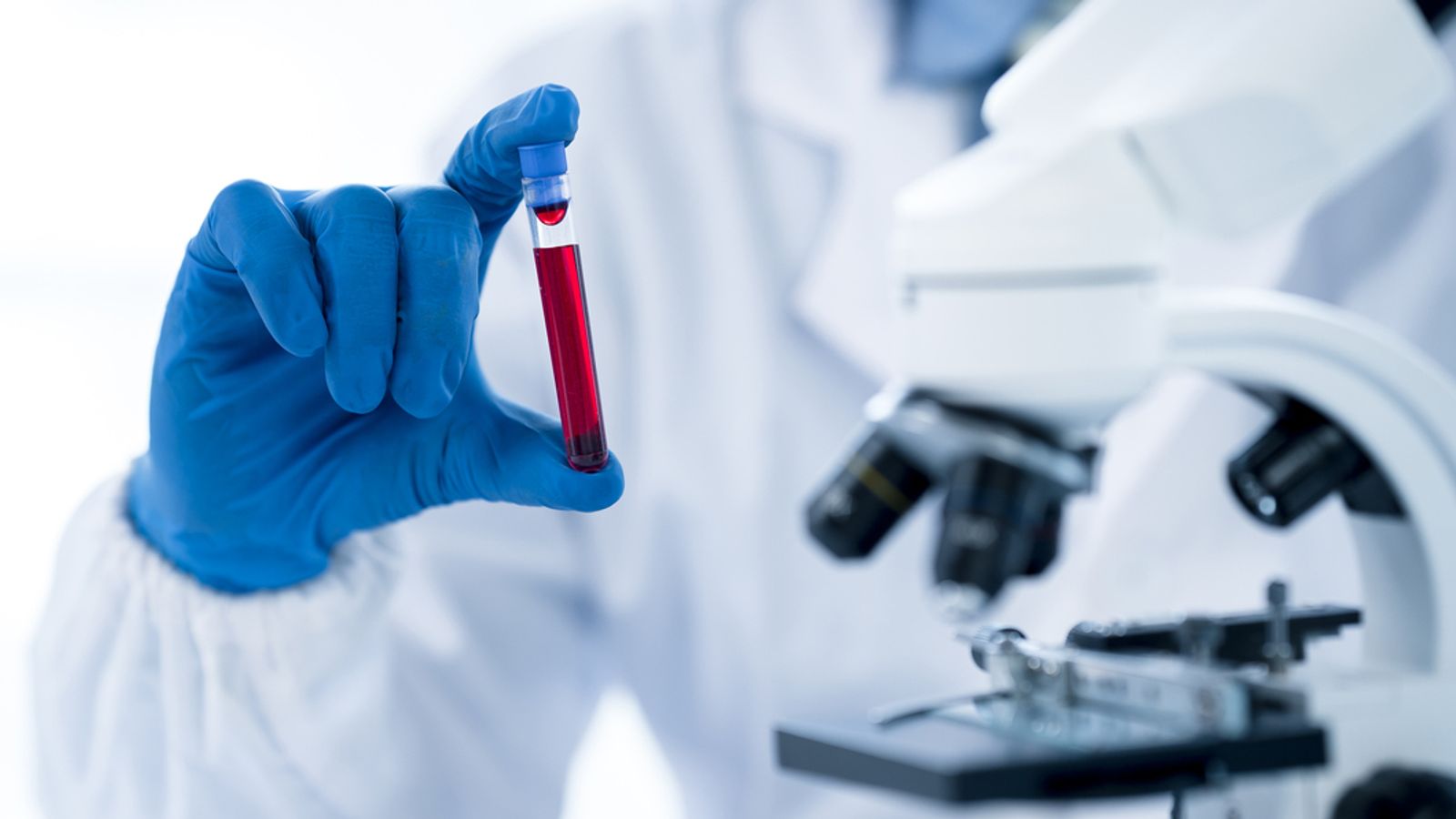A blood test that can detect 50 types of cancer could reportedly be offered to “a million people” in a pilot programme from next summer.
NHS chief executive Amanda Pritchard said the Galleri test – developed by the US company Grail – has the potential to “transform cancer care forever”, according to The Times.
The test detects fragments of tumour DNA circulating in the bloodstream. It can detect cancers that are not routinely screened for and it can find where the disease is coming from in the body with a high degree of accuracy.
The paper reports Ms Pritchard saying that if provisional results of the trial prove successful, testing will be rolled out to an extra one million people from next summer.
It cites her saying: “Our pioneering NHS Galleri trial, now in its second year, is the first step in testing a new way to identify cancers before symptoms appear.
“If provisional results prove successful, we will be rolling out the test to an extra one million people across the country from next summer, with the aim of diagnosing thousands more people with cancer at an earlier stage.”
A researcher involved in an NHS trial told a conference of health service leaders in Manchester that the blood tests could one day be carried out by people in their own homes, the paper reports.
The Galleri test, is being trialled on around 140,000 Britons aged 50 to 77.
Test shown promise in trial
Catching cancer early is vital for people to receive prompt treatment and potentially save thousands of lives in the UK every year.
A study led by the University of Oxford found that the test has shown promise in a trial involving thousands of NHS patients.
Of the 6,238 people in England or Wales in the trial who had visited their GP with suspected symptoms, the test was able to detect signs of cancer in 323 of them – 244 of these were subsequently diagnosed with cancer.
Read more:
Most early-stage patients will become long-term survivors
Beverly Hills 90210 star, reveals cancer has spread to her brain
Overall, the test correctly revealed cancer 66% of the time, researchers found.
The accuracy of the test was also dependent on the stage of the cancer – ranging from 24% for very early-stage (stage I) tumours, to 95% for advanced disease (stage IV).
The Galleri test is currently available in the US and has been recommended for people at higher risk of cancer, including the over-50s.
It is also able to pinpoint where in the body the disease is coming from with 85% accuracy.
The test does not detect all cancers and it is not thought it could replace NHS screening programmes, such as those for breast, cervical and bowel cancer.

